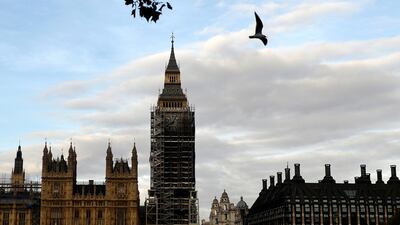A summit of British political leaders has been called to address a firestorm of allegations of sexual misconduct that has implicated dozens of MPs, including senior cabinet ministers in Conservative prime minister Theresa May’s government.
“I’ve written to all party leaders inviting them to a meeting early next week so we can discuss a common, transparent independent grievance procedure for all those working in parliament,” she said. “We have a duty to ensure that everyone coming here to contribute to public life is treated with respect.”
Jeremy Corbyn, the leader of the main opposition Labour Party, and other opposition leaders have signed up to the cross-party initiative. But the adoption of new rules is unlikely to stem the tide of allegations.
News of the meeting came after a Labour activist said she was persuaded by senior figures not to report a rape by a fellow party member to the police. The ineffectiveness of parliamentary rules to avoid abuses by elected representatives has also been exposed by a leaked internal Conservative Party spreadsheet that listed sexual allegations against 40 MPs, some serving in the cabinet.
Many of those on the list have protested its inaccuracy.
__________________
Read more:
British politics convulsed by sexual allegations made against senior party members
House of Cards axed by Netflix as #Metoo fallout continues for Kevin Spacey
Alyssa Milano's 'me too' hashtag sets social media alight
__________________
Deprived of a parliamentary majority in June’s general election, Mrs May has no room for error in handling the growing scandal. One of those facing accusations is Damian Green, the first secretary of state. He is not only her de facto deputy but a trusted ally who went to university with the prime minister and worked for her when she was a powerful home secretary.
The allegations have already highlighted the prime minister’s weak position. A House of Commons committee recommended a new and tougher grievance committee just six months ago but the findings were shelved. It has been suggested that the leaders feared a revolt by MPs in what now looks like a failure of judgement.
The scandal surrounding the sexual allegations against Hollywood producer Harvey Weinstein triggered women around the world to share their own experiences of assault on social media using the hashtag #metoo. When female political journalists and activists in Britain joined in, the focus fell on allegedly misbehaving politicians.
The British parliament has not yet fully recovered from an expenses scandal that devastated public trust in politicians less than a decade ago. Political observers fear the effect of the current allegations will be even greater, since they revolve around the abuse of people not public funds.
“If politicians are found to have misused their authority for sexual purposes it is a serious breach of trust,” said Matthew D’Ancona, a conservative commentator. “The spreadsheet is still an important document. It symbolises the determination of women working at Westminster to draw a line in the sand, as their counterparts in Hollywood and theatre are doing.
“When a politician misuses his authority for sexual purposes, he not only demeans and damages the subject of his predations, he besmirches the public trust and brings the political system into disrepute. We do not send our representatives to Westminster to behave like superannuated rock stars searching for groupies.”
Institutional resistance to modern human resources practices has been strong among MPs, who run the hiring and firing in their own offices. David Cameron, the former Conservative prime minister, was rebuffed when he proposed a voluntary code of conduct that would have offered parliamentary staff extra protection from sexual harassment.
A confidential hotline for MPs' staff was set up as a safety net in 2014. A trade union representative said the advice line had not delivered effective support.
“There is no human resources department [in parliament]. The helpline can’t help you. It can offer advice but ultimately it will suggest you contact the MP directly,” said the parliamentary staff official.
To strengthen the whistle blowers' hotline, staff will now be instructed to report any allegations made to the police.


